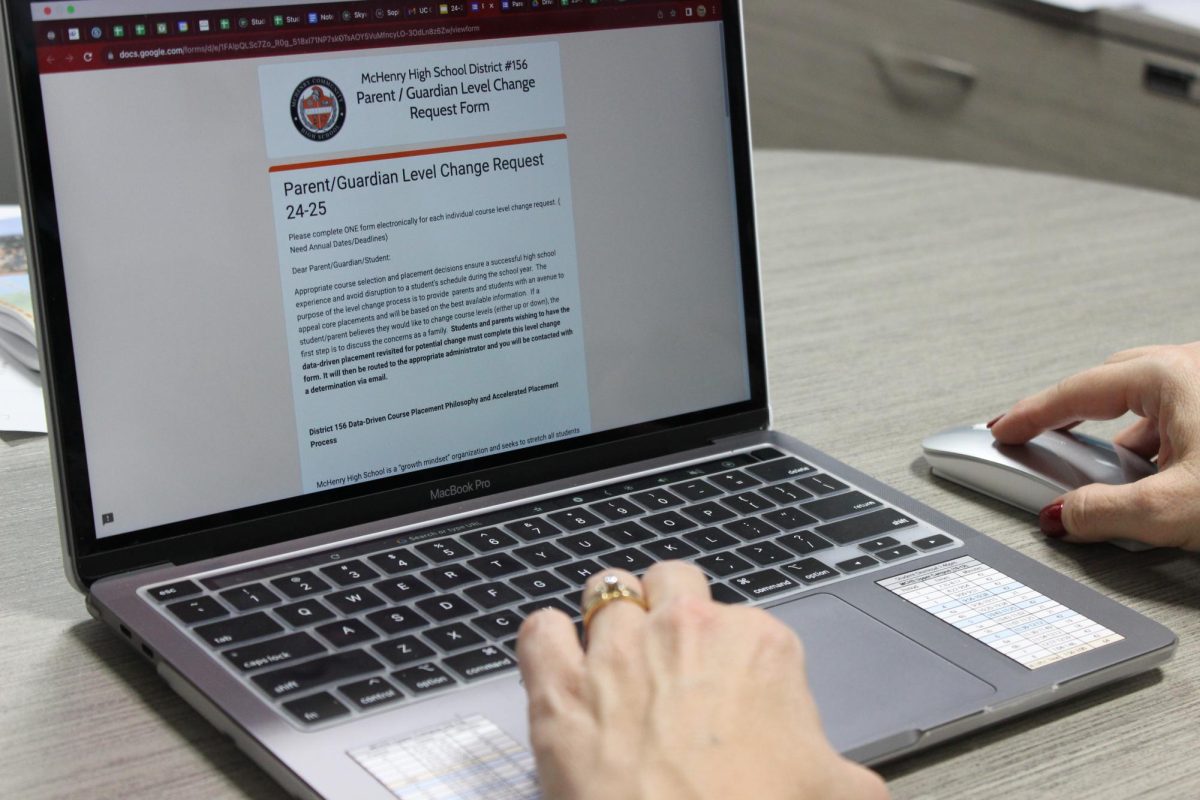As MCHS students dive into course selection for the next school year, this brings bustling classrooms of high-performing students with an air of intellectual curiosity and determination, where new eager minds absorb the challenges and rigor to advance their academic achievement.
The Illinois State Board of Education has enforced the Accelerated Placement Act in 2017 which placed students in an educational setting with a curriculum that is usually reserved for students who are older or in higher grades than the student.
Meaning “accelerated placement gives opportunities need not be limited to early entrance to kindergarten or first grade, acceleration in a single subject, or whole grade acceleration,” according to the Illinois Board of Education.
An update to the Act has been enacted in the spring of 2021.
The update specifies that by no later than the beginning of the 2023-24 school year, a school district’s accelerated placement policy, grades 9-12, will enforce automatic enrollment to the next most rigorous and advanced course level if the student meets or exceeds state standardized test scores in English, language arts, math, or science.
Placement of exceeding students will be a new change that MCHS will enforce for the 2023-24 school year, challenging students through a new way of course selection and teacher recommendation.
“It’s an Illinois state law. It’s not a MCHS thing. It’s a state initiative if a student meets or exceeds in a certain part of the SATs, either the math or ERBW. They automatically have to be placed in the next rigorous course up, so an honors or AP course as opposed to a regular course,” said MCHS counselor Nicole Bacigalupo.
It may be challenging for students to adjust to a new placement of coursework if they are willing to accept the challenges that it may bring.
“I mean, it’s going to be challenging. We have to develop the mindset though, that you can do this. That this is a place of academia.” said Dr. Jeffery Prickett, MCHS upper campus principal.
While it may excel some students to try, students may fear that they may find themselves in a position that is not ideal to them.
“I think it will allow some people to take the classes they want to take. Some people just do not do well with assignments and excel with tests. So I think it gives a lot of people a lot of opportunities,” said Lex Bach, a junior at MCHS. “But for me I have no interest in taking any ‘AP’ courses and will have to make the effort to change my classes next year to fit the schedule I want.”
The staff at MCHS want to see students succeed and challenge themselves, but they also recognize the capability of students.
“We have to recognize that student is really struggling, and the content is just too much and they have done everything they can. Then there has to be a time where you say, okay, let’s get this student into a more comfortable spot where they can succeed,” adds Prickett.
Staff and counselors understand the balance necessary for each individual student.
“Here’s what we believe; you are capable of in each department and placed in the most rigorous courses we have in all those areas,” said Curtis Menke, the College and Career Counselor. “However, that is where the balance piece comes in, and is it in someone’s best interest to accelerate in all of those areas, based on their time and in and out of school, responsibilities, and priorities.”
Regardless, students and their families are still able to opt out through communication through counselors and the completion of a level change request form.
“The good part is there are still checks and balances like if a student is going to be moved up, the parent and student will be notified in the parent and student can still go through that level change process to advocate to go back into a regular level class,” continues Bacigalupo.
Administrators and divisionals sift through class recommendations and view students who scored above and go back and change those courses.
But, the Illinois Board of Education and, more specifically, MCHS want to challenge students by pushing them to do their best and show their growth.
Prickett concludes, “I don’t want people to panic…This just gives more kids an opportunity, whereas they might not have had it before.”




